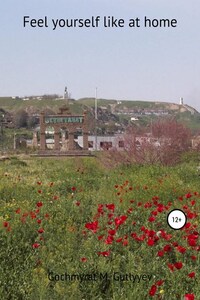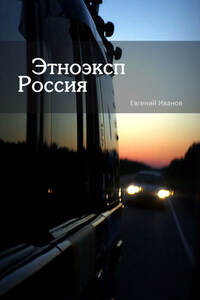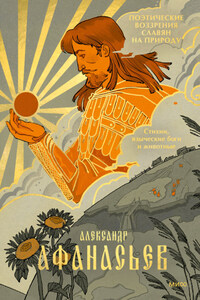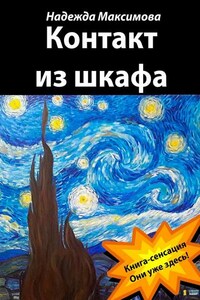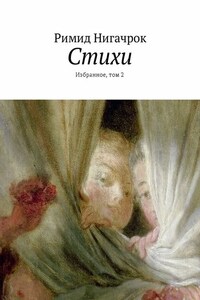When at 2002 I was asked to be an expedition master for visiting my areas American scientist Victor Fet of Huntington, West Virginia, I did not expect to meet my future “khalypa”[1]. Not only on ecology and wildlife, but in writing as well.
Next year honorable Victor introduced me to other outstanding person. Steven G. Torres of Sacramento, California then became my host-advisor (and my future to-become-true friend) while my participation in exchange program with a residence in his part of USA. It looked like I became a family business for him, his wife Alison and their daughters and, of course, for Alison’s mother. Just during a long friendly conversation with them I started to put into fragmentary pieces some ideas “to deliver my folks’ mentality to a compassionate foreigner”. Moreover, much later, at 2017, even not knowing my inward inclinations to write, Steve and Alison created some conditions for me to concentrate full attention to finalize my essays, leaving aside routine chores, and to compose the present book. It was initially in Russian.
Then Victor and Steve, when I undertook myself to translate it, kindly agreed volunteering to correct my “self-learnt and vernacular” English and to transform it into proper and accurate lines.
I appreciate their efforts sincerely and whole-heartedly.
Let me repeat once again: in the beginning I put my thoughts and ideas into short sketches and fragmentary notes. Then for some period of time I nearly threw away all those text or left them on book shelf. Fortunately, at 2007 I was invited to participate in Central Euroasia Leadership Academy where I met Nancy Crossman. She was a story writer for a group, which I studied in. The lady chased me under every occasion with her endless questions regarding different sides of my folks’ mode of life. And made it in such friendly and tactful manner that I even did not intend to wonder: “why are you asking only me, not other members of Turkmenistan’s group?”. On the contrary, just thanks to her curiosity at the year I decided to try writing a full size book on the issue (Turkmen’ traditions and mentality).
Briefly, I am considering all above mentioned distinctive personalities as true inspirers of the book, if not direct co-authors of it.
Also I wish to thank my both sons Akmukhamed and Nowruz, who truly backed me up while crossing a hardship of recent years. And they still stand elbow-to-elbow with me in present days.
“Most of my important lessons about life have come from recognizing how others from a different culture view things.”
Edgar H. Schein
In 2004 I was contacted by a representative from the United States Department of State, who asked if I would be interested in participating in an international program that sponsors scientists from other countries. At that time, I was working for the California Department of Fish and Wildlife as a senior scientist overseeing over 50 statewide wildlife conservation projects, including those that benefited large and small mammals as well as endangered species and multi-species projects. The State Department official described to me a program administered through the International Research and Exchanges Board (IREX), a non-profit organization that helps facilitate education and leadership opportunities worldwide. After learning more about this interesting program, I agreed to host a visiting professional from Turkmenistan. I was especially enthusiastic to participate because seventeen years earlier in 1987, I co-hosted a visiting scientist, Dr. Victor Fet, and his family – coincidentally also from Turkmenistan. Dr. Fet edited and co-authored “Biogeography and Ecology of Turkmenistan,” the first book to detail the flora and fauna of Turkmenistan. As an ecologist and scientist, I became absolutely fascinated with this unique and ancient desert region that is home to so many important ancestral plant and animal species. The more I learned from Dr. Fet’s book, the more enthralled I became with the Turkmen culture and other parts of Central Asia. To many westerners, this area in general and the Turkmen culture in particular, are relatively unknown.
I will always remember the first time I met Gochmyrat Gutlyyev at the Sacramento airport, where he arrived after about two weeks of intensive training from the State Department in Washington, D.C. – a crash course about American culture and customs. Not knowing what he looked like, I stood beyond the security checkpoint holding a sign with his name on it. I scanned the sea of people coming off planes until at last, a slender, dark-haired fellow wearing a navy blue wool pea coat spotted my sign. He immediately broke into a huge grin, a smile that animated his entire face. “You must be Gochmyrat,” I said. After we greeted each other, we got his luggage and I drove him to my home. My daughters had decorated our front door with a homemade sign that said, in brightly colored crayon, “Welcome, Gochmyrat!” I was anxious to get to know Gochmyrat and I also felt a huge sense of responsibility because I wanted him to have a good experience in this international exchange program. I tried to picture how he must be feeling: I imagined myself coming to a country on the opposite side of the planet, a country about which I knew only what I had read and what a crash course had just taught me. Where would I even start? And what would it be like to stay with complete strangers?
The State Department official told me before Gochmyrat’s arrival that his areas of expertise and interest for this internship were wildlife conservation and cultural tourism. Accordingly, I arranged for Gochmyrat to travel the entire state of California to visit various wildlife management and habitat conservation projects. These projects included studying the California Department of Fish and Wildlife’s methods for developing water sources for wildlife in the California deserts, as well as catching and handling mule deer, bighorn sheep, mountain lions, and endangered species for several conservation and research projects. I also arranged for Gochmyrat to participate in several helicopter wildlife surveys and capture projects throughout the state. So that Gochmyrat could get the widest range of cultural experiences with different people and projects, I decided not to accompany him on many of these trips. Instead, I arranged his travels so that he could work and live with each project leader. I was impressed with his ability to adapt to these different settings, people, and personalities. I was very pleased with the positive feedback I received from my colleagues who truly enjoyed working with Gochmyrat and having him meet their families. Gochmyrat had excellent English language skills and he quickly endeared himself to me, my family, other professionals and their families. As a side note, I should say that I consider myself to be an adaptable, adventurous person and I enjoy travels and new challenges. Yet I will admit to being humbled by Gochmyrat’s ability to adapt and take risks – he is even better at it than I am!
